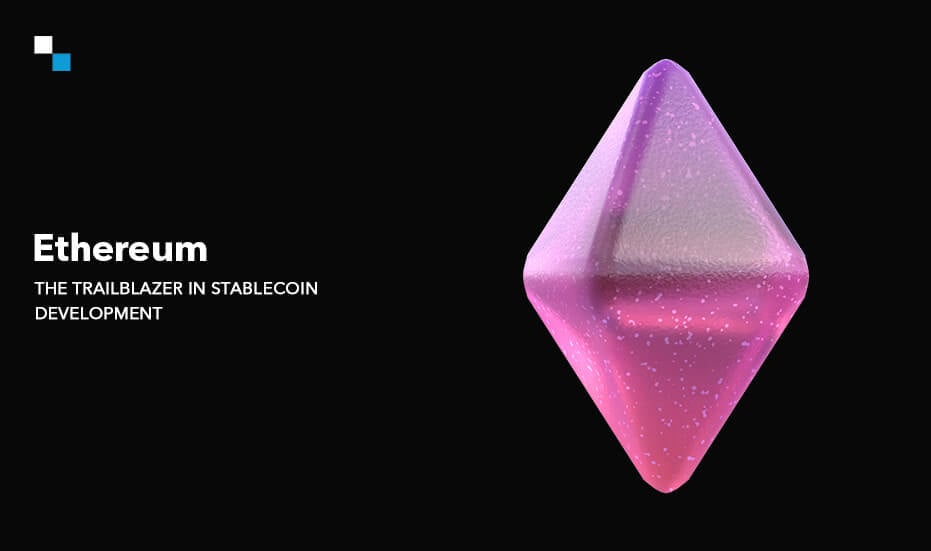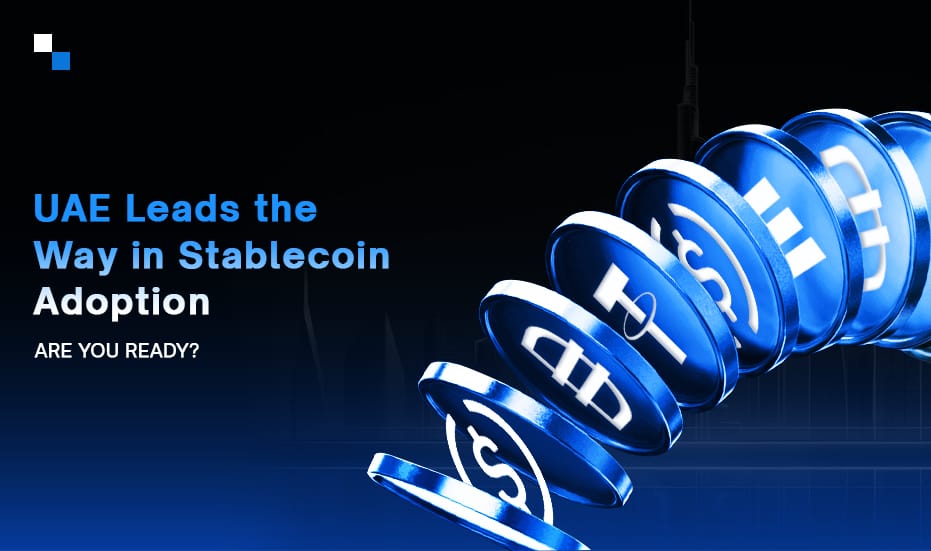
What is NFT Token Gating? A Step-by-Step Guide to Get Started
March 15, 2024
Hidden Disruptors: Why White Label Neo Banks Are Your Next Investment (2024)
March 15, 2024Volatility imposes a significant hurdle in the ever-evolving cryptocurrency market. Major tokens like Bitcoin undergo dramatic price swings. It can be exhilarating for some, but it also creates an atmosphere of uncertainty and hinders wider adoption as a reliable medium of exchange. This is where stablecoins come into the scene, as they offer a unique solution by pegging their value to a stable asset, such as fiat currency (USD, EUR), precious metals (gold), or even other cryptocurrencies.
Among various blockchain platforms, Ethereum has emerged as the frontrunner for stablecoin development. Let’s explore the factors that make it the preferred choice for many stablecoin development services.
The Need for Stablecoins
As we are adaptive to cryptocurrencies we can soon enter a world in which we will be able to use them for everyday transactions like buying groceries or paying bills. Why do we expect the stablecoins will be preferred over the other coins? It’s because stablecoins bridge the gap between the volatility of traditional cryptocurrencies and the stability of fiat currency.
Here are some of the advantages they offer:
- Price stability: Unlike highly volatile cryptocurrencies, stablecoins are pegged to a stable asset, and offer a reliable store of value.
- Fast and Cheap Transactions: Stablecoins enable faster and cheaper cross-border transactions compared to traditional banking systems because they are backed by blockchain technology.
- Increased Liquidity: Stablecoins create additional liquidity within the DeFi ecosystem, facilitating lending, borrowing, and other financial activities.
- Gateway to Crypto: Stablecoins can act as an entry point for new users who are hesitant about the volatility of other cryptocurrencies.
Why Choose Ethereum for Stablecoin Development?
Have you ever discussed the most suitable blockchain for building stablecoin with any stablecoin development company? If yes, then you must have been suggested to choose Ethereum. There are several advantages of using this popular blockchain network for stablecoin development. Let’s discuss it!
1. Stability in Volatile Markets
One of the primary reasons why Ethereum has become an eye candy of stablecoin development services is its ability to create digital assets pegged to real-world assets, fiat currencies, or other stable assets. Besides providing a hedge against market volatility, stablecoin offers a reliable store of value and medium of exchange in the decentralized ecosystem.
2. Seamless Integration with DeFi Ecosystem
Ethereum’s robust infrastructure and vibrant DeFi ecosystem provide fertile ground for stablecoin development and integration. Ethereum-based stablecoins can interact with a wide range of DeFi protocols seamlessly, which includes lending, borrowing, yield farming, decentralized exchanges (DEXs), and liquidity pools.
3. Interoperability and Compatibility
Stablecoins developed on Ethereum benefit from the platform’s interoperability and compatibility with other blockchain networks and protocols. Therefore, you can easily integrate them into cross-chain interoperability solutions, enabling seamless transfer and exchange of value across different blockchain platforms and ecosystems.
4. Decentralization and Trustlessness
The decentralized architecture and smart contract functionality of Ethereum ensure trustless and censorship-resistant stablecoin transactions. Therefore, developers from an experienced stablecoin development company can create transparent and auditable systems that operate without the need for centralized intermediaries or third-party oversight.
5. Programmability and Customization
Ethereum supports smart contracts and enables developers to create programmable stablecoins with customizable features and functionalities. Implementing smart contracts in stablecoins allows them to incorporate advanced features such as automatic rebalancing, algorithmic stability mechanisms, and dynamic supply adjustments based on market demand and supply dynamics.
6. Regulatory Compliance and Transparency
Choosing Ethereum makes it easier for stablecoin development services to implement regulatory compliance measures and transparency features to adhere to legal and regulatory requirements. Ethereum-based stablecoins can incorporate features such as identity verification, transaction monitoring, and audit trails to ensure compliance with anti-money laundering (AML) and know your customer (KYC) regulations.
7. Enhanced Security and Audibility
Robust security features and the transparent ledger of Ethereum ensure a high level of security and audibility for stablecoin transactions. Smart contracts that govern stablecoin operations can be audited and verified by technical experts, which enhances security and instills confidence among users and stakeholders.

Popular Stablecoins Built on Ethereum
Several stablecoins have been developed on the Ethereum blockchain. Here are some of the prominent ones:
1. Tether (USDT): Tether is widely used for trading and remittance purposes. It is pegged to the value of the US dollar. It operates on various blockchain platforms, including Ethereum.
2. USD Coin (USDC): USD Coin is pegged 1:1 to the US dollar. It is an ERC-20 token on the Ethereum blockchain and is used for various DeFi applications, payments, and trading.
3. Dai (DAI): Dai is a decentralized stablecoin created by MakerDAO and pegged to the US dollar through overcollateralization of Ether (ETH) in the MakerDAO system. Dai is used extensively in DeFi protocols for lending, borrowing, and trading.
4. sUSD (Synthetix USD): sUSD is pegged to the value of the US dollar. It is used within the Synthetix ecosystem for trading synthetic assets, derivatives, and other financial instruments.
5. TrueUSD (TUSD): TrueUSD is a USD-backed stablecoin that operates on the Ethereum blockchain and is regulated by the US government.
6. Paxos Standard (PAX): Paxos is pegged 1:1 to the US dollar and operates as an ERC-20 token on the Ethereum blockchain.
7. Gemini Dollar (GUSD): Gemini Dollar is a stablecoin that is pegged to the US dollar. It is regulated by the New York State Department of Financial Services (NYDFS) and operates as an ERC-20 token on Ethereum.
How much does it cost to build stablecoin on Ethereum?
Building a stablecoin on the Ethereum network involves several cost factors that need to be considered in a professional manner:
1. Choosing the Stablecoin Development Company
The reputation of stablecoin development services matters a lot. The experience and expertise of developers will definitely have an impact on the cost of stablecoin development. Besides this, the team size also influences the price of development.
2. Smart Contract Development
The cost of developing the smart contract for the stablecoin on Ethereum can vary depending on the complexity of the project and the expertise of the developers involved. This cost typically includes coding, testing, and auditing the smart contract for security and functionality.
3. Gas Fees
Ethereum transactions require gas fees to be paid to miners for processing transactions on the network. The cost of gas fees may fluctuate due to network congestion.
4. Security Audits
If the stablecoin development services provider has to seek the help of a third-party security auditor to review the smart contract code for vulnerabilities and potential exploits, it will increase the cost. The cost of security audits can vary depending on the complexity of the project and the thoroughness of the audit.
5. Legal Compliance
Costs associated with legal compliance involve consultation with experts and regulatory filings.
6. Maintenance and Updates
Ongoing maintenance, bug fixes, and updates to the stablecoin smart contract are essential for long-term success, but they come with a certain price.
Conclusion
Developing stablecoins on the Ethereum blockchain offers numerous advantages, including enhanced security, transparency, interoperability, cost-effective transactions, decentralized governance, scalability, and flexibility. Ethereum’s smart contract capabilities, popularity, flexibility, decentralization, and well-established infrastructure have all contributed to its dominance in the stablecoin market.
Build your own stablecoins with confidence by partnering with Antier – the leading Stablecoin Development Company trusted by top industry players. Contact us today for stablecoin solutions that drive growth and stability in your business.



